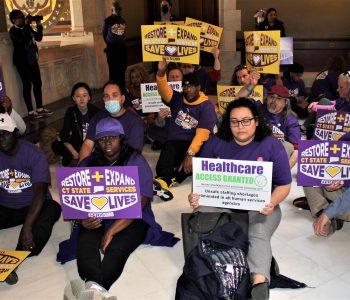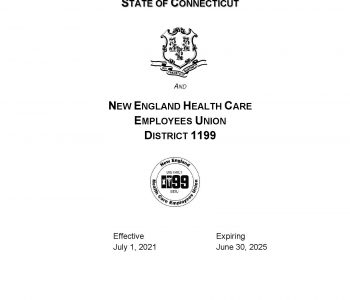 Featured Post
Featured Post
On Tuesday, Jan. 11, at 10:00 a.m., legislators and mental health experts held a symposium to highlight the growing and unprecedented mental health and addiction crisis in Connecticut and offered a bold, unified vision for policymakers to enact in order to help children and adults during the upcoming legislative session.
Speaker of the House Matt Ritter opened up the event by reminding attendees of the change this legislative session could create, “This is an opportunity to do something historic and in a bipartisan way with overwhelming support. We need to put more money into the public sector and the private sector. But we have to be honest, we need to offer incentives for people to move to Connecticut. If everyone is united, we can do something historic.”
“This is a moment of extraordinary crisis. Governor Lamont and the legislature provided leadership in significant funding increases for long-neglected workers in nursing homes and group homes last year, though sadly it is now clear much more is needed,” said Rob Baril, President of SEIU 1199 New England, “With Omicron deviating the public and the health care workforce physically and emotionally exhausted, we need that same extraordinarily leadership once again in a major delivery of funding to stabilize a system in crisis and a commitment to long-term system redesign to strengthen long term care and the public-private safety net, in mental health and beyond.”
Panelists throughout the three hour symposium emphasized that the current mental health crisis was preventable–and offered the following principles, outlined in the coalition’s policy document, that lawmakers should use to build a truly robust mental health safety net:
- Expand Services to Save Lives. End the rationing of mental health care by dramatically expanding the mental health and addiction services in the public and private sectors available to all residents and improving the full continuum of services (preventative, treatment, and crisis services).
- Guarantee Equity–So No One is Left Behind. Restore cuts from historic disinvestment by expanding and prioritizing funding for care infrastructure in Black and brown communities and fully funding mental health and addiction services for people with disabilities.
- Adopt a Holistic Approach to Mental Health Care for Youth. Commit to an integrated system of care for at-risk children and expand the safety net for all children. Expand both inpatient treatment and preventative care and integrate care into school districts and communities.
Healthcare providers reported a devastating picture of a system in crisis: long waiting lists, staffing crises, and children and adults suffering without the necessary services. Vikiana Gray, Licensed Clinical Social Worker in the Department of Mental Health and Addiction Services, said, “Health is a fundamental human right. Language access is a fundamental right. For that to happen we need to invest in public infrastructure. There is a staffing crisis – as people retire those positions are not being filled or being eliminated. If we lose funding the services we’re talking about today are already lacking are going to get worse. We’re not going to get better with less resources.”
Dr. Akashdeep Aujla, a child psychiatrist in the Department of Children and Families, said “The last psychiatrist we recruited at DCF was 17 years ago. We are leaning on per diems and temporary workers. That is not what the public sector was set up to do. We must address the staffing crisis by filling the 100 vacancies and 100 upcoming retirements by prioritizing improved recruitment and retention policies. Our children cannot afford to wait for services when they are in crisis.”
Panelists highlighted the need to expand the continuum of services available to all people in Connecticut. Thomas Burr, policy director at NAMI CT, said: “A system that was stretched to the breaking point pre covid, is broken. After decades of disinvestment, we need a broad investment in services. In a lot of ways we have the basic structures in place, we need to just dramatically expand the things that work, like peer supports, regional run respite centers, and housing all along the continuum.”
Kathy Flaherty, Executive Director at the CT Legal Rights Project, asked: “Is it a sign of clinical mental illness, whether someone is reacting to a profoundly broken world? What do we actually need to provide the support for people’s mental health and well being? We need basic things like housing, income support, paid leave, childcare and access to physical and mental health care.”
To close out the symposium, Senator Martin Looney, President Pro Tempore, said, “I want to reassure everyone that issues related to mental healthcare, and affordable mental health care will be front and center for the 2022 session of the general assembly.”
Watch the Symposium here:
Contacts:
- Puya Gerami, Recovery For All, puya.gerami@gmail.com, 860-655-4201
- Drew Stoner, SEIU, dstoner@csea760.com, 508-404-7515
# # #
Mental Health Vision Doc.pdf – Google Drive
Connecticut Mental Health Needs in the Pandemic.pptx – Google Slides








